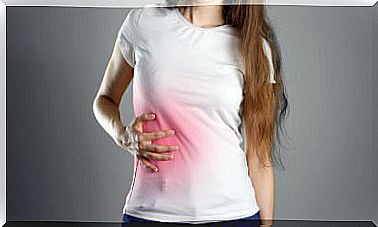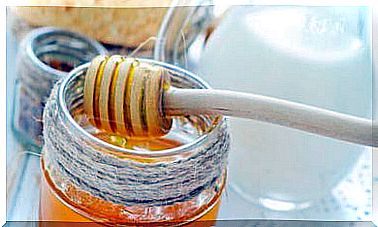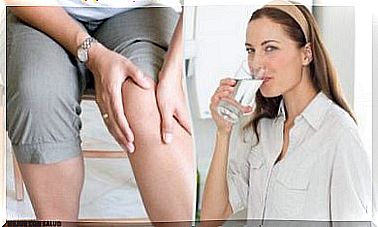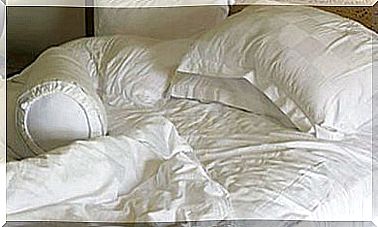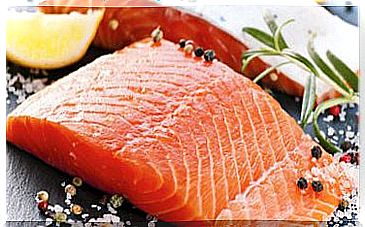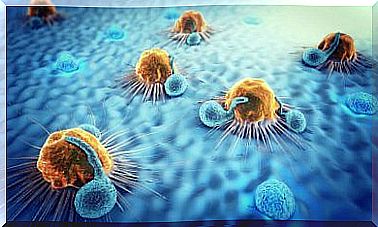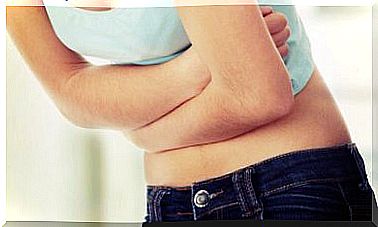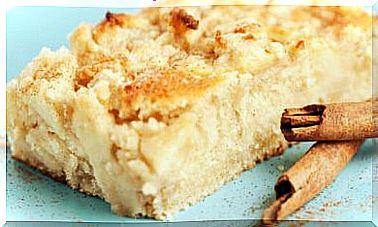How Can I Tell If I Have Gallstones?
Gallstones can be a silent health problem. Unfortunately, they can be detected too late, when surgery is necessary to remove the gallbladder.
In this article, we present the most frequent symptoms of this ailment. We also share some guidelines that could help you prevent this condition.
Gallstones: What They Are and Causes
Have you ever wondered what gallstones are? Stones are hard crystals that are stored and blocking the basic functions of this organ.
According to data from the US National Library of Medicine, they are formed when bile is altered and hardens in the presence of certain substances. Gallstones can also appear when the gallbladder, due to some alteration, does not empty completely. Hardened bile can be as small as a grain of sand or as large as a golf ball.
Causes of gallstones
The causes of its formation are very varied. In general, the stones are related to cholesterol ; however, this does not mean that someone with high cholesterol will show this condition. There are people who, despite not having cholesterol in their blood, have gallstones.
Another common cause is excess bilirubin in the bile. Diseases such as diabetes, liver cirrhosis, and gallbladder failure are also associated with gallbladder stones.
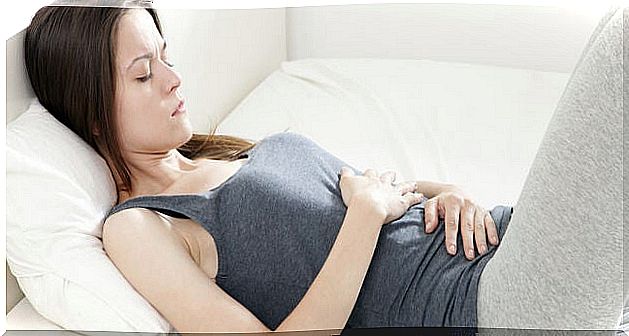
Symptoms, do I have gallstones?
As we have already pointed out, some people suffer from this disease asymptomatically. The American College of Gastroenterology explains in this regard that if they do not cause symptoms, they are not usually a source of problems and, therefore, do not require treatment.
Symptoms occur when a gallstone blocks the flow of bile either from the bile ducts or from the gallbladder. Next, we analyze the symptoms described by the institution mentioned in the previous paragraph.
1. The type of pain
The pain appears suddenly and lasts from a few moments to hours. It occurs in the upper right part of the abdomen and can radiate to the right shoulder, also presenting with sweating, nausea, and vomiting. It is one of the first symptoms that occurs when the stone begins to move and block the so-called cystic or common bile duct pathways.
It is a symptom that can be confused with other ailments, such as heart attack. However, keep in mind that we can all feel some kind of momentary pain that does not really have any important health significance.
2. Belly swelling
There are many times when our belly swells and this is not a direct symptom of gallbladder stones. Now, look at when it happens to you: is it almost every day? Always after your meals? The best thing is that you try to keep track of the symptoms. If it is something continuous and you perceive any more symptoms, consult your doctor.
3. Digestive problems
Some people with gallstones also have minor or notable digestive problems. These can be indigestion , gas, belching, inflammation and / or cramps.
These people may be prone to discomfort after eating, especially when the food is too fatty. This tends to feel heavy and cause discomfort.
4. Physical symptoms
It does not always happen but sometimes, as a BMJ analysis points out, it does happen and we cannot ignore it: the skin can take on a slightly yellowish tone due to bile.
Something also remarkable, for example, is that the whites of the eyes can also acquire a yellowish tone. This is a symptom that requires you to go to the doctor as soon as possible.
5. Changes in stool and urine
We must remember that the gallbladder is linked to the production of bile, the processing of fats and the digestive process. If the stones are obstructing the gallbladder, our entire digestive and excretory system will perceive small alterations.
In the case of feces, it is common for them to have a whiter and gelatinous appearance, while urine may appear a little darker than normal, as well explained in the same BMJ article linked above. It is worth keeping in mind.
Possible treatments
The American College of Gastroenterology clarifies that the treatment of this condition is closely related to the severity of the symptoms. In those cases where there is no pain, the most common is to avoid treatment.
When the so-called “gallbladder attacks” appear, the doctor may suggest waiting and seeing if the problem resolves on its own, that is, if the patient passes the stones without intervention.
On the other hand, when a person suffers from more than one attack to the gallbladder, it is usual that surgery is recommended to remove the stones. If the gallbladder is inflamed, the specialist may decide to remove it.
Proper guidelines for taking care of your gallbladder
It is clear that, if we suffer from gallstones, following a proper diet will not dissolve them. Of course, it will always be our doctor who will assess what to do and if an intervention is necessary.
However, if you are not experiencing any symptoms at the moment, it may be worth preventing the risk by following some eating tips that were published on WebMD and in a study by the Korean Journal of Family Medicine :
- Consume 2 tablespoons of olive oil per day.
- Include foods with lecithin in the diet as this substance would prevent cholesterol from solidifying. Among them we find chocolate, eggs and soy.
- Moderate coffee intake could have some protective effect.
- Eating fruits and vegetables may help empty your gallbladder.
In conclusion, many people have gallstones but don’t know it. Although their presence may be discovered by chance when conducting a study, as they do not present symptoms, they would not require treatment. On the contrary, those who show symptoms, should go to the doctor.
Have we answered your question? Perhaps when reading our article have you seen reflected any discomfort that you have suffered? In that case, visit the specialist so that he can assess through the respective tests whether or not you have gallstones.
